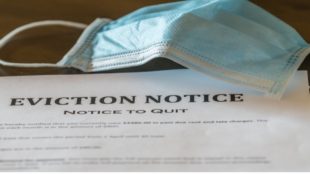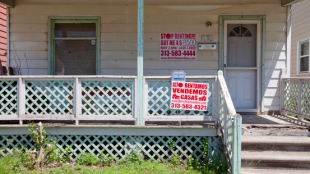Evictions Are Coming: An In-Depth Look at the COVID-19 Eviction Crisis
(Source) In the United States, nearly 1.4 million people per year spend time in a shelter, and there are more homeless people than the population of some rural states. For those living in city centers, it is an unignorable issue. A home is a foundation on which people build their lives—losing the place you call home can have serious impacts on one’s ability to obtain financial stability and can have impacts on one’s mental health. When the COVID-19 (“COVID”) pandemic hit American shores, it not only devastated the health of communities but also their financial stability, specifically impacting communities of color more severely. During the hardest hit months of the pandemic, over fourteen million Americans filed for unemployment. This spike in unemployment meant families lost the ability to financially provide for themselves, and for many of them, the debt of every day expenses, such as rent, began to accumulate. The looming threat of eviction hangs over many of these families who worry that they will be just another homeless statistic. This piece explores the eviction moratoriums the federal government and the New York state government put in place and analyzes the protections they provide to tenants. It is important to [read more]


